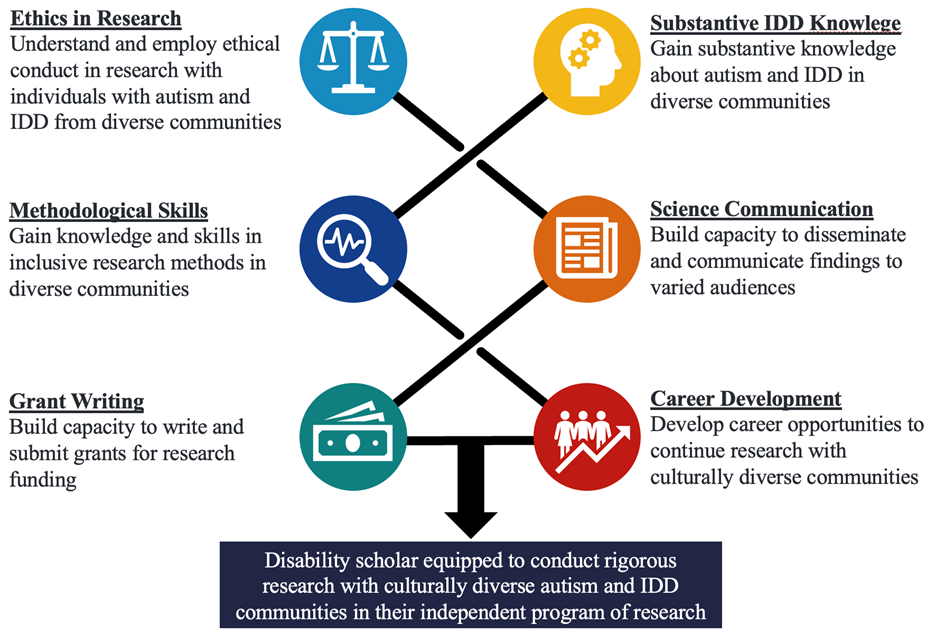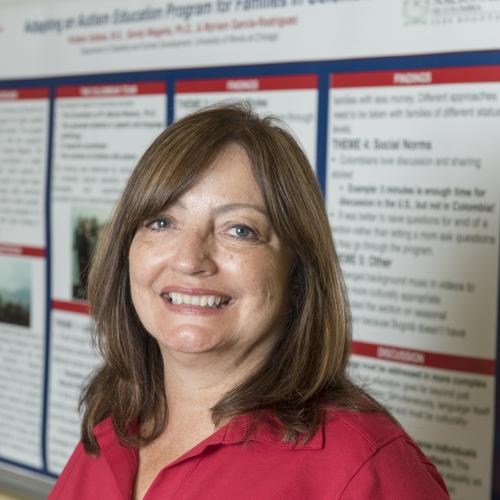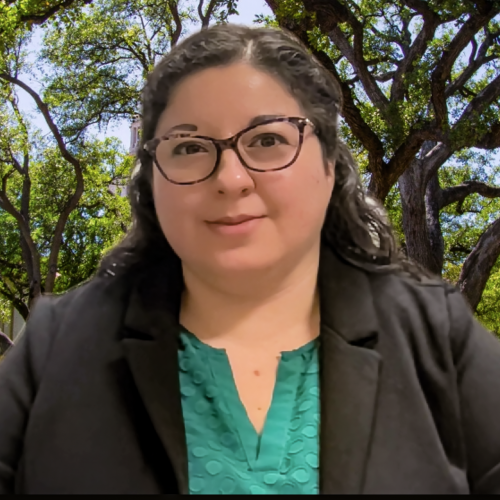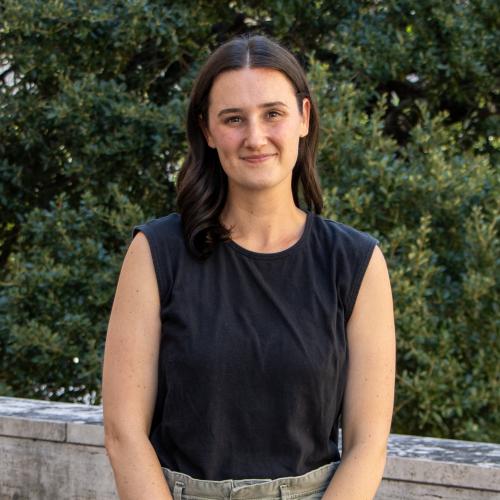This advanced research and training program will expand the pool of scholars conducting rigorous IDD community living research in under resourced communities through training up to six postdoctoral fellows from diverse backgrounds. The training program will include working with a lived-experience advisory board, didactic preparation, a primary and secondary mentorship program, and collegial and collaborative activities in the Steve Hicks School of Social Work and the University of Texas campus. Learning objectives include ethics in research, substantive IDD knowledge, methodological skills, science communication, grant writing and career development. A unique aspect of this program is to train fellows to work with and gain feedback from self-advocate and family member advisors.
Trainee outcomes include publishing two to three papers per year, presenting their work at one national conference per year, creating two to three plain language products for community members each year, preparing one grant for submission to a federal funding source, and obtaining at least one job offer by the conclusion of their training program. Postdoctoral fellows are supported by an accomplished team of primary and secondary mentors with a range of research opportunities related to autism/IDD and other disabilities, under-served communities, and/or racial and ethnic inequities.
This opportunity is open to all qualified applicants.
Texas Center for Disabilities at the Steve Hicks School of Social Work offers this postdoctoral training through an award (90ARCP0009) from the National Institute on Disability, Independent Living, and Rehabilitation Research.
Advanced Rehabilitation Research Training: IDD Research in Under Sourced Communities

Researchers
-

Sandy Magaña, Ph.D., MSW
Executive Director
Texas Center for Disability Studies
-

Sandra B. Vanegas, Ph.D.
Research Associate Professor
Clinical Training Director for ACT LEND
Director of Research for TCDS
ARRT Postdoctoral Fellows
For more information on mentors for this project, expectations, and FAQ, please visit the Steve Hicks School of Social Work posting.
How to Apply
- One to two post-doctoral fellow positions open
- Applications will be reviewed on a rolling basis.
- Application materials: Cover letter; curriculum vitae; two-page (single-space) statement describing research interests, experience, eligibility, training needs and career plans; writing sample; three letters of recommendation.
- Upload application materials here
- Direct Inquiries to program directors:
- Sandy Magaña, PhD, Texas Center for Disability Studies, Steve Hicks School of Social Work smagana@austin.utexas.edu
- Sandra B. Vanegas, PhD, Texas Center for Disability Studies, Steve Hicks School of Social Work sandra.vanegas@austin.utexas.edu
- Postdoctoral fellows will further their research and training agendas through formal mentorship and coursework, seminars, conferences, and other career development activities.
Highlights
- Annual $65,000 stipend, health insurance stipend, and travel/professional development allowance.
- This is a one-year fellowship, starting in fall 2024, with the possibility of a second year, contingent on satisfactory progress.
- Each fellow will have a primary and secondary mentor. They will work with established investigators on research projects and be expected to prepare and submit manuscripts for publication, present at local and national conferences, and develop and submit at least one grant proposal by the end of the fellowship term.
- Fellows will be trained in community living, engaging diverse communities in research, participatory research methods, and intervention research.
Eligibility
- This opportunity is open to all qualified applicants. Individuals in disability research, individuals with disabilities, or from disadvantaged backgrounds are strongly encouraged to apply.
- Applicants are required to possess a Ph.D. or Doctorate in a relevant discipline.
Applicants must be a citizen, permanent resident, or have an appropriate training


